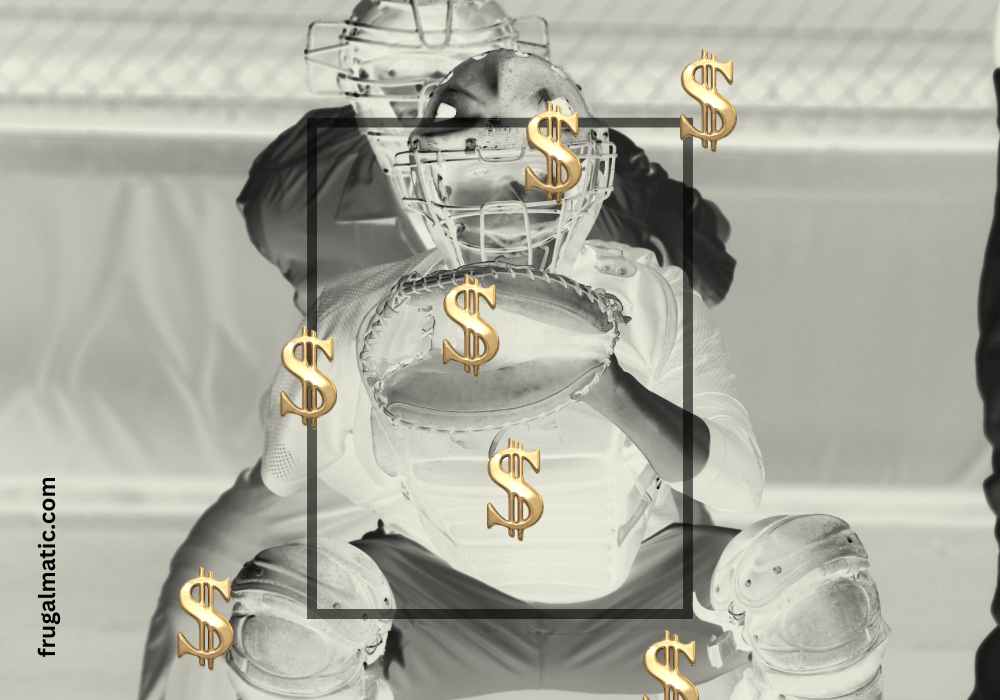This post was last updated on October 12th, 2025 at 07:23 pm
A surge in sports betting addictions in the U.S. has been entirely predictable. Once the Supreme Court legalized gambling in 2018, it was only a matter of time before people everywhere would be placing bets via the internet from the comfort of their couches. Once considered a vice, sports betting has been normalized. It’s a crisis that everybody could see coming, and yet the situation is actually worse than I predicted.
When I first wrote about this topic three years ago, I wasn’t thinking about the different types of sports betting or whether some types would be more damaging than others. All I knew was that easy access would lead to widespread addiction. But what’s now clear is that some forms of betting are worse than others. Specifically, I never predicted the rise of what’s known as proposition bets, or prop bets.
Sports betting has cheapened the fan experience
One of my fears was that the legalization of sports betting would cheapen the fan sports experience. It’s done that. That cheapening is perhaps best symbolized by the “BetMGM” sign on the Green Monster at the historic Fenway Park. We’ve fallen pretty far since the days when a “no gambling” sign was displayed prominently at old Yankee Stadium. Not that baseball was ever truly sacred, but teams back then at least made an effort to appear to follow a higher standard.
Now the message to fans everywhere is: If you really want to enjoy this game, you need to bet on it.
It’s become difficult to consume any amount of sports-related programming without having to see or hear someone referencing sports betting. By linking professional (and even college sports) to gambling, discussions about sports has been dumbed down. Serious analysis has given way to conjecture over game outcomes or the likelihood of certain events happening.
This endless gambling talk, coupled with league partnerships with sportsbooks, has degraded professional sports. It’s shifted the some of focus from the product itself (the teams on the field) to the fans trying to profit off the product.
Prop betting makes sports betting more toxic
It is true that gambling has always been a threat to professional sports, particularly baseball. Former Cincinnati Reds Manager Pete Rose’s legacy is tied up in his decision to bet on game outcomes, including some involving his own team (though he said he never bet against them, as if that matters). Perhaps the most infamous gambling example is the 1919 Chicago White Sox, some of whom were found guilty of a scheme to throw the World Series.
The difference today is that sports betting is much more in our faces because of its legal status. Also, the betting scandals today look different, and they’ve become shockingly common. It’s not just baseball, either. Basketball and football are dealing with their own scandals, from the NCAA to the professional leagues. Is it any coincidence many of these scandals have occurred since that 2018 Supreme Court ruling?
Betting scandals look different today, in large part, because they often involve players acting individually, as opposed to colluding with each other. Prop betting has fueled these scandals. Prop betting allows people to bet on small events within games. For example, a recent MLB investigation involves pitches thrown by Cleveland Guardian pitcher Luis Ortiz. With prop betting, you can bet whether a particular pitch will be a ball, strike, or hit a batter. It’s relatively easy for a pitcher to deliberately throw a certain pitch, which could affect a prop bet. Whether Ortiz deliberately threw a ball during a June 15 game is the question that the MLB is investigating. Ortiz’s teammate, Emmanuel Clase, is being investigated for a similar reason.
Some fans might not think these types of investigations are a serious concern, but what if one tainted pitch does alter the outcome of a game? Even if Ortiz is cleared of any wrongdoing, the mere prevalence of this type of betting threatens the integrity of the entire league. It’s also easy to see how fans might question the integrity of umpires, too, who call the balls and strikes. In the back of your mind, you might begin to question whether a really bad pitch was just that or something more. Or, was an umpire’s really bad call just that or something more?
Prop betting puts players’ safety at risk
Another consequence of prop betting is that players themselves have reported being harassed by gamblers who became angry over a player’s performance. The Athletic conducted an anonymous survey of Major League Baseball players, and 78% of the 133 respondents responded “yes” to the question, “Has legalized sports betting changed how fans treat you or your teammates?” Some players have even reported receiving death threats.
Three years ago, I never would have predicted that the surge in betting addictions would lead to players receiving death threats. But it makes sense. When people are addicted, they stop being rational. The sad part is professional leagues have partnered with sportsbooks, and so these leagues are actually helping feed this toxic culture. Almost overnight, sports betting went from being a shady, taboo practice to a mainstream activity. Even celebrities such as Payton Manning and Derek Jeter have endorsed sportsbooks.
It’s little wonder that some gamblers feel safe in threatening players. We’ve normalized gambling to the point that some people actually expect players to make gambling a consideration in their performance.
So what is to be done?
How to limit the damage from the sports betting crisis
For starters, any state that hasn’t yet legalized gambling should refrain from doing so because of the addiction and player safety concerns. At the same time, we need better enforcement against offshore gambling sites to prevent sports betting from making inroads into non-sports betting states.
Also, state legislatures should consider taking steps to tame this online Wild West by prohibiting prop bets, on grounds that it endangers players’ safety and the integrity of sports.
Yes, nationalize the sports betting industry
Finally, I would favor an attempt by states or the federal government to “nationalize” sports betting and create a state-operated system with tight controls on who can gamble and in what ways they can gamble. Under this system, prop betting would be banned. In addition, nationalizing the industry would eliminate the noxious marketing campaigns employed by sportsbooks to create new gamblers.
There is a precedent. The country of Norway has a similar system and uses the proceeds to fund youth recreational activities and sports. Keep in mind, the success of a nationalized gambling system would depend on the states’ ability to crack down on access to offshore gambling sites.
Whether these suggestions are realistic, at least in the short term, isn’t the point. My point is that something should be done before a large-scale scandal or incident occurs. Sports betting is a scourge on the sports scene and our culture, in general. Let’s take steps now before the situation gets worse, and it will get worse if nothing is done.

